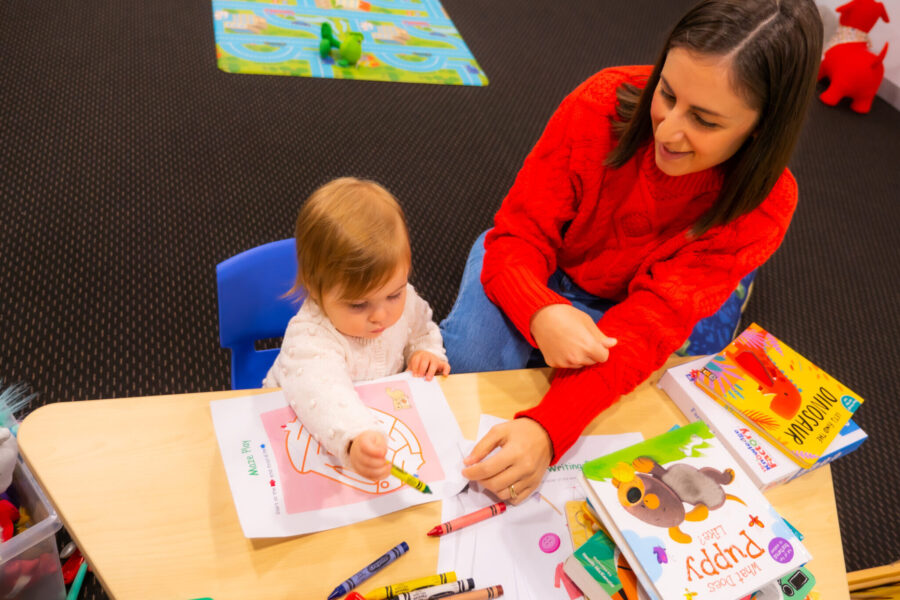Fine motor skills
Fine motor skills play a crucial role in the holistic development of children, particularly preschoolers. Encouraging them to practice these skills as early as possible sets a strong foundation for writing readiness, an essential skill set for effective writing. Writing, like any other skill, demands consistent practice, and preschoolers with well-developed fine motor skills have a higher likelihood of becoming proficient writers in the future. In this post, we will delve into the significance of nurturing pre-writing skills in preschoolers and explore various strategies that parents can employ to effectively support their children in this regard. By implementing these approaches, parents can ensure their little ones have a solid grasp on fine motor skills and pave the way for future success in the realm of writing.
Providing opportunities that promote fine motor skills development
To support the healthy development of fine motor skills in preschoolers, it is crucial to provide them with abundant opportunities for activities that enhance their hand-eye coordination and manual dexterity. Parents can encourage their children’s progress by engaging in activities that involve holding a pencil, using scissors, and manipulating small objects. Playdough, blocks, Legos, beads, and puzzles are excellent choices that can effectively exercise their hand muscles.
Writing readiness is an essential aspect of a child’s early educational journey. By participating in activities like coloring books, tracing, and drawing, children can sharpen their pencil grip and enhance their pencil control. These activities not only foster creativity but also help children refine their motor skills.
By dedicating time and resources to facilitate the development of fine motor skills in preschoolers, parents can ensure that their children are well-prepared for future academic challenges that require manual dexterity and hand-eye coordination.
SHICHIDA at Home provides many hands-on activities that help your child develop their fine motor skills. Check out how SHICHIDA at Home can help develop your child’s fine motor skills from the comfort of your home, all while facilitating that all-important bond between parent and child.
Encouraging sensory play
Sensory play is a valuable method to foster the development of pre-writing skills in young children. This approach encourages the engagement of multiple senses, including touch, sight, and sound. Examples of sensory play include sandbox play, water play, and finger painting. By engaging multiple senses, these activities aid in the enhancement of fine motor skills in preschoolers. Additionally, sensory play improves hand-eye coordination and dexterity, both of which are crucial for preparing children for writing. Incorporating sensory play into a child’s routine can have a lasting positive impact on their overall development.
SHICHIDA at Home provides many activities that encourage children to use all five senses through Image Play. Check out how SHICHIDA at Home can help develop your child’s senses from the comfort of your home, all while facilitating that all-important bond between parent and child.
Incorporating physical activities
Physical activities, such as yoga, aerobics, and martial arts, play a vital role in the development of children’s gross motor skills. These skills are essential for overall growth and the proper functioning of the body. Additionally, engaging in these activities helps children build core muscle strength, improve balance, and enhance their motor coordination, indirectly improving their readiness for writing. By incorporating these activities into their routine, children can foster a well-rounded development that sets a solid foundation for their overall physical and cognitive growth. Taking part in physical activities not only promotes physical fitness but also boosts self-confidence and improves social interactions. It provides an outlet for children to express themselves creatively and develop a sense of discipline and perseverance.
Moreover, these activities contribute to the prevention of sedentary lifestyles and the associated health risks, ensuring a healthy and active future for children. Encouraging children to participate in a variety of physical activities from a young age sets the stage for a lifetime of wellness and promotes a positive attitude towards health and fitness. Start incorporating these activities into your child’s routine today to support their overall development and well-being.
SHICHIDA at Home provides a lot of physical activities that your child can have fun doing with mum and dad. Check out how SHICHIDA at Home can help develop your child’s gross motor skills from the comfort of your home, all while facilitating that all-important bond between parent and child.
Practice, practice, and practice
Writing is a valuable skill that necessitates consistent practice, and even preschoolers can benefit from it. Regular practice enables children to enhance their fine motor skills, handwriting, and pencil control, contributing to their overall development. It’s crucial to acknowledge that every child is different, with no fixed timeline for when they should begin writing. To support their preschoolers, parents can motivate them to practice writing their names, the alphabet, and simple sentences. By cultivating this habit from an early age, children can lay a strong foundation for their future language and communication abilities.
Seek professional support if necessary
If parents notice that pre-schoolers are struggling with the development of fine motor skills, it is advisable to seek professional assistance, such as occupational therapy. Occupational therapists are highly trained professionals who can provide specialized support to children experiencing challenges with fine motor skills and writing. Through personalized assessments, goal-setting, and therapy sessions, occupational therapists can help children overcome these difficulties and enhance their overall development. With their expertise and guidance, parents can ensure that their children receive the necessary support to thrive and succeed in their daily activities and academic pursuits.
Strong fingers for clear writing
In conclusion, it is essential to foster the development of pre-writing skills in pre-schoolers as it contributes to their overall growth and development. Parents play a critical role in providing ample opportunities for their children to enhance their fine motor skills through engaging in play and physical activities. Additionally, incorporating regular practice of simple writing activities can greatly enhance pre-schoolers’ readiness for writing. While the development of fine motor skills is a natural process, some children may require additional support, and it is advisable for parents to seek professional guidance if needed. By nurturing pre-writing skills in pre-schoolers, parents can effectively lay the foundation for their children to become proficient writers in the future.








